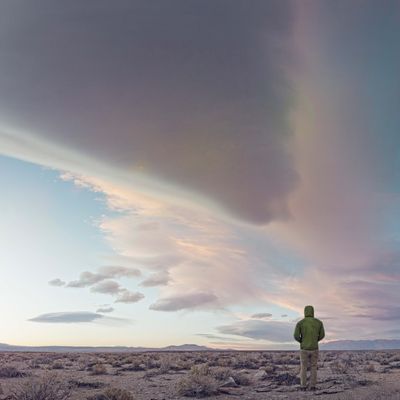
When’s the last time you felt real, genuine awe? That you felt lifted up out of yourself, connected to a vaster, more important truth? If it’s been a while, you might want to read Carlin Flora’s article in Psychology Today about the sometimes-profound psychological effects of these states.
As the article makes clear, awe can come in all sorts of different forms — sure, there’s the powerful, somewhat over-the-top version, in which you travel to the desert, eat some sort of strange cactus, and gaze up at the impossibly luminous night sky. But busy city-dwellers without access to deserts don’t need to give up on the concept, since tapping into a sense of awe can be as simple as taking a few minutes by yourself in a park, away from the concrete and the horns. “During a time of personal upheaval,” Flora writes, Daniel Smith, the author of a memoir about anxiety, “sought out reverential experiences by sitting under a linden tree near his Brooklyn apartment every day for months.”
Flora conducted many interviews for her article, and they all have different thoughts on what awe means to them. The unifying theme, though, is that a sense of awe gives you a break from yourself. All your worries, all that internal chattering — it doesn’t necessarily go away when you’re feeling awe, but it certainly recedes into the background, becoming a distant whisper rather than the incessant hum it often feels like. This provides some cognitive and psychological breathing room, writes Flora. “When the constant buzzing of ‘me, me, me’ recedes, we might become sensitive to loftier principles.” Or, as psychologist Paul Piff tells Flora at one point, “I’m not that important or big, but I am a part of something much bigger.”
“Awe leaves us speechless,” in other words, as Flora writes. It pipes us down — in a good way.




